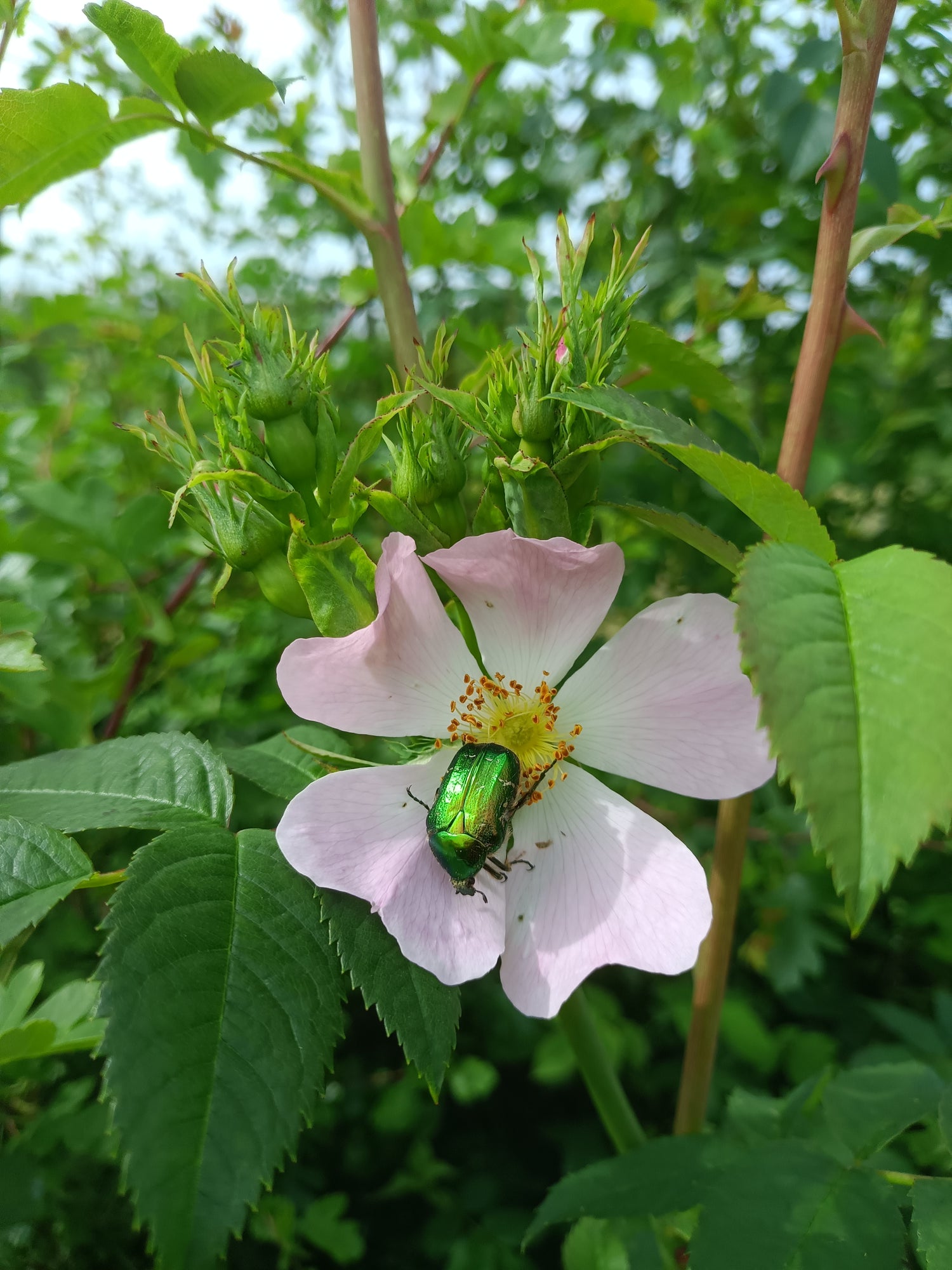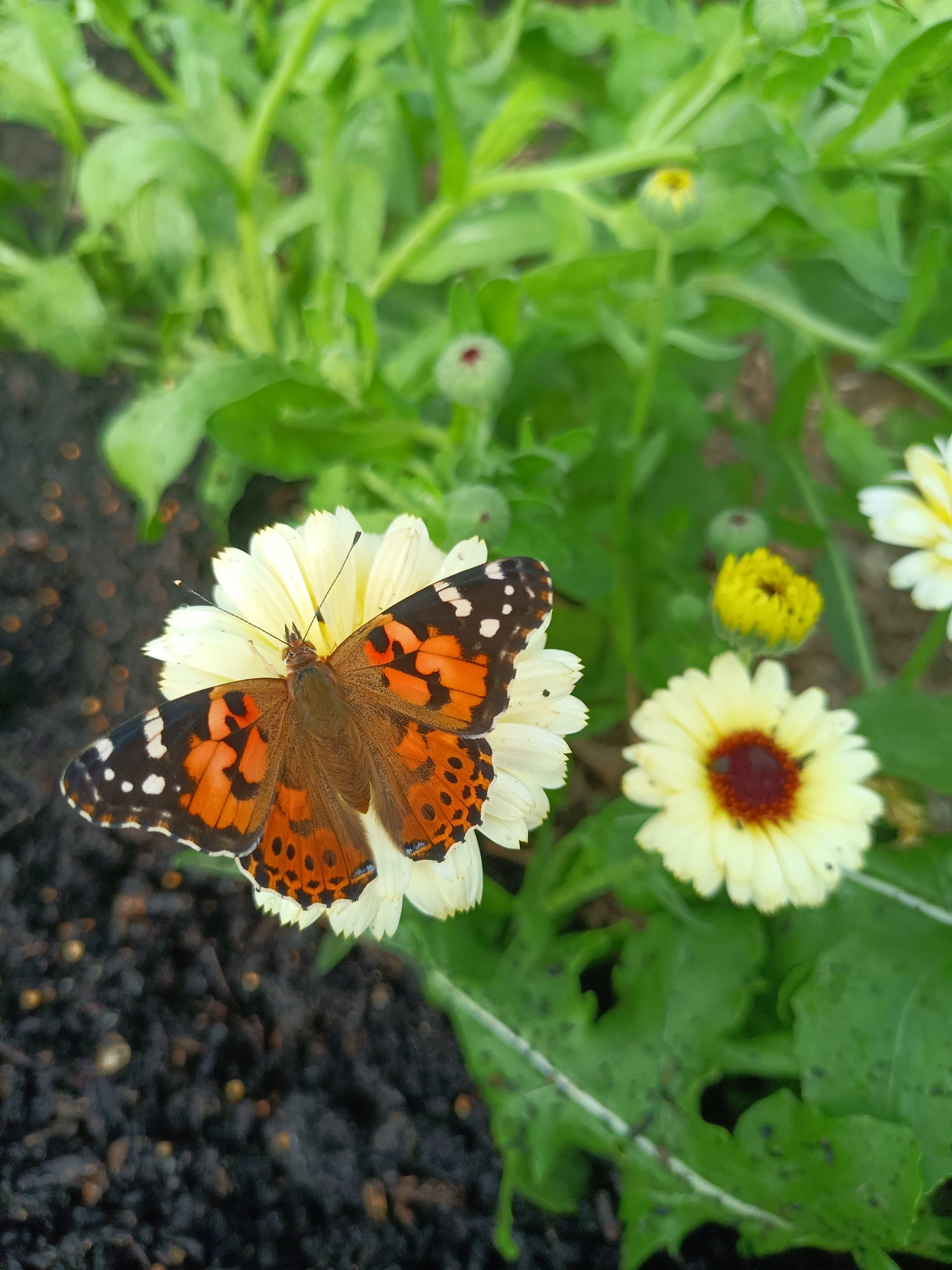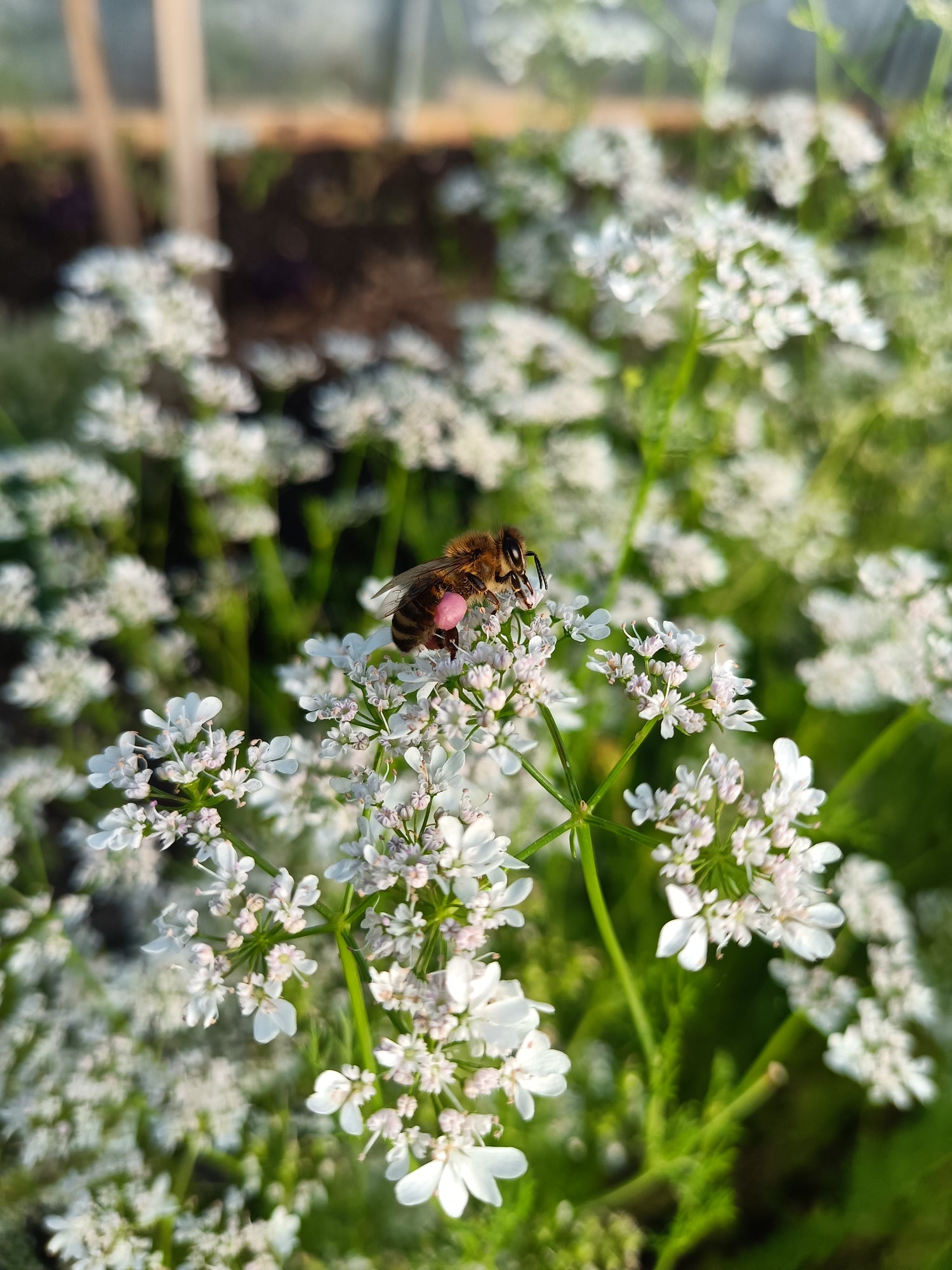
Always Organic
Real Flower Power
At Aweside Farm, we grow organic edible flowers not just for beauty or flavour — but for biodiversity. Our flowers are planted with pollinators in mind, grown in living soil, and nurtured without chemicals in a way that restores rather than extracts.
When I first arrived here, this land was silent. Just a patch of grass, flat and lifeless. No hedges. No trees. No buzz of bees or flutters of butterflies.
Now?
- We’ve planted over 5,500 native trees
- Created 500m of wildlife-rich hedgerows
- Grown 1.5 acres of young woodland
- Added a pond that teems with frogs, dragonflies and birds
- Cultivated flower-rich growing spaces across the whole 4.5-acre farm
And at the heart of it all: flowers.
Edible flowers are ecological powerhouses. When grown in a chemical-free, organic system, they provide:
- Nectar and habitat for native pollinators
- Food for beneficial insects that keep ecosystems in balance
- A source of beauty and biodiversity in farmed landscapes

the ground up
Why We Grow Differently
Many edible flower producers rely on heated greenhouses, imported flowers, and plastic-based growing systems. The end product might look similar — but it doesn’t feed wildlife or regenerate the land.
We do things differently:
- Grown in real soil, in the open air
- Seasonal, solar-dried and hand-harvested
- Certified organic and wildlife-friendly
- No imports, no chemicals, no waste
By choosing Aweside, you're supporting a kind of farming that brings more life into the world — not less.

be a part of the magic
What You’re Supporting When You Buy from Us
Aweside Farm has gone from silent, compacted grassland to a thriving haven for pollinators and soil life. An ecological survey in 2022 found:
- 91 individual pollinators recorded in a single transect
- Bumblebees, solitary bees, butterflies and hoverflies in significantly higher numbers than in baseline or control surveys
- Earthworm species richness and density surged, including deep-burrowing species that rebuild soil health
- 63 new invertebrate species recorded since organic farming began
- Linnets and other farmland birds now seen regularly foraging and nesting on the farm
This isn’t just a flower farm — it’s a living case study in how regenerative, organic growing can bring land back to life.
Every pressed viola, every tin of dried petals, every handful of calendula contributes to this.
Your choice matters.
